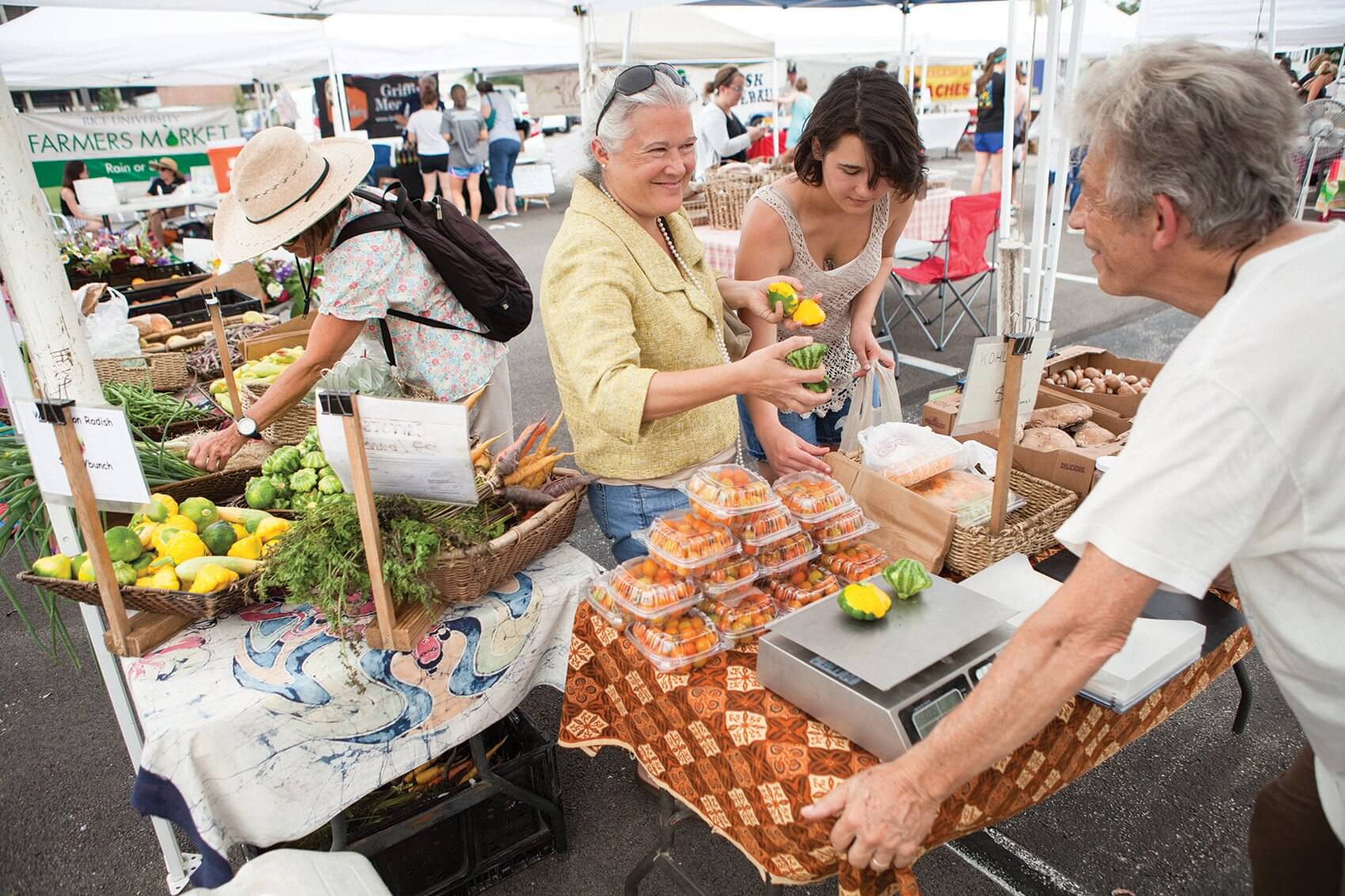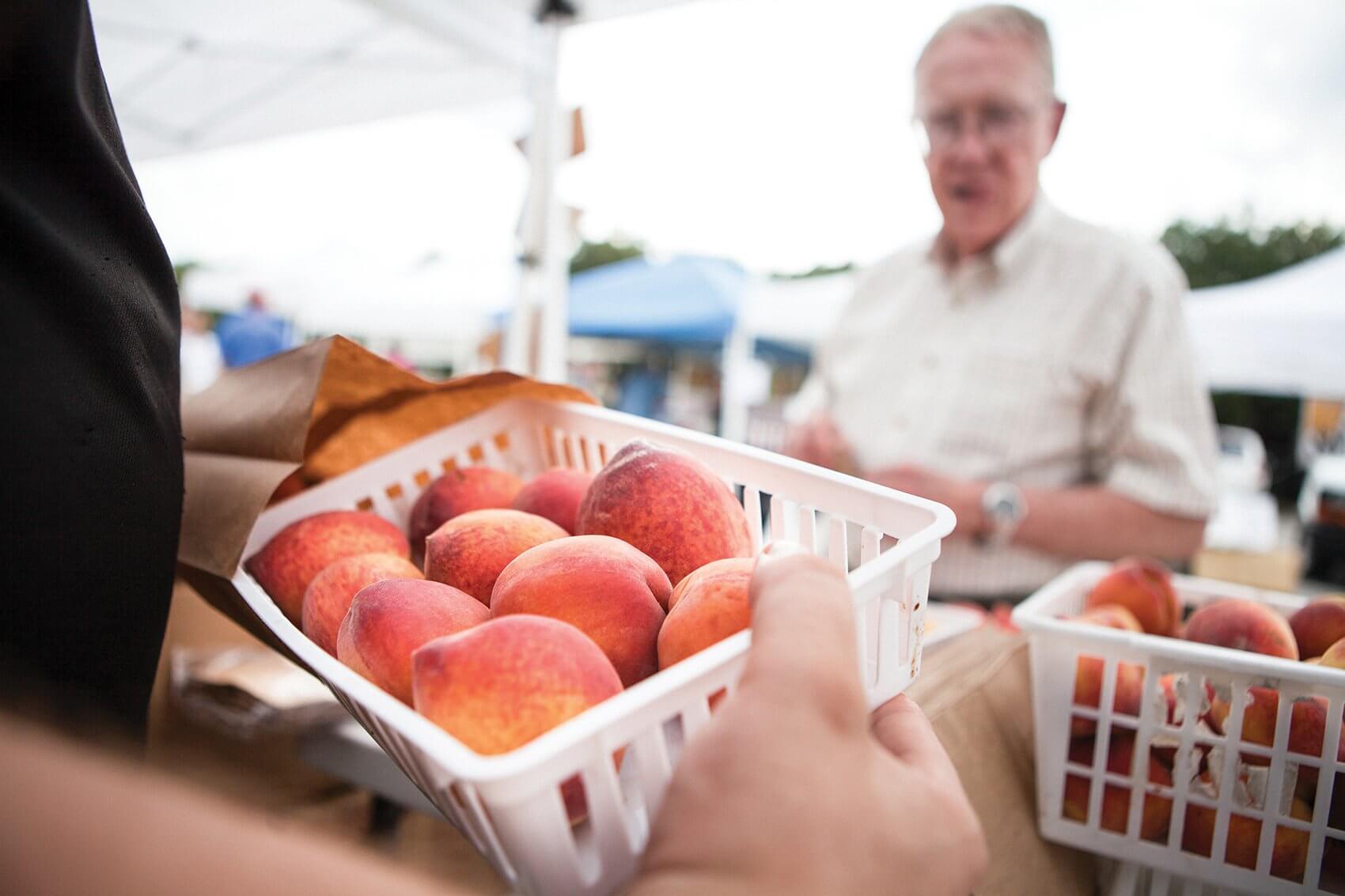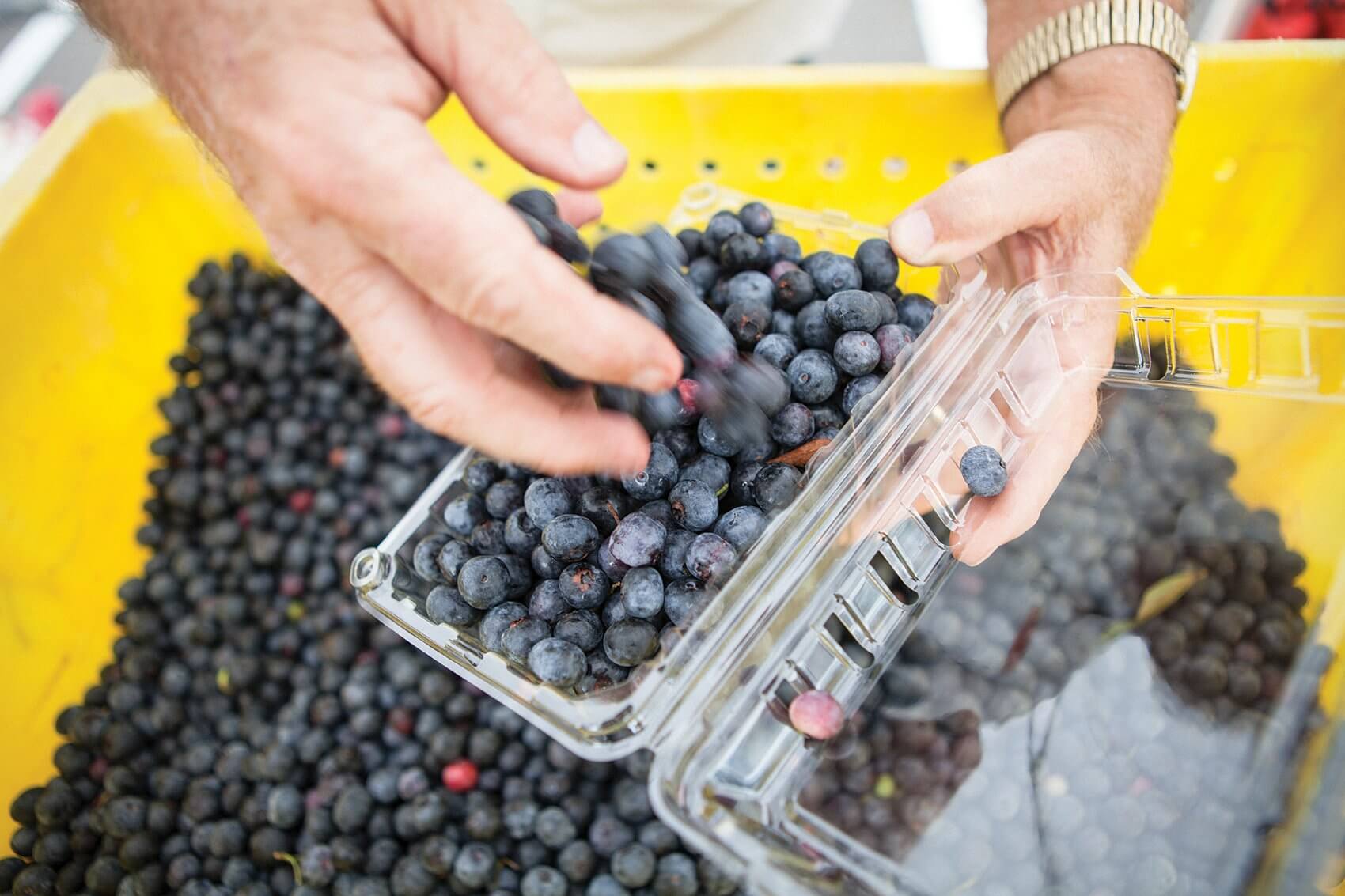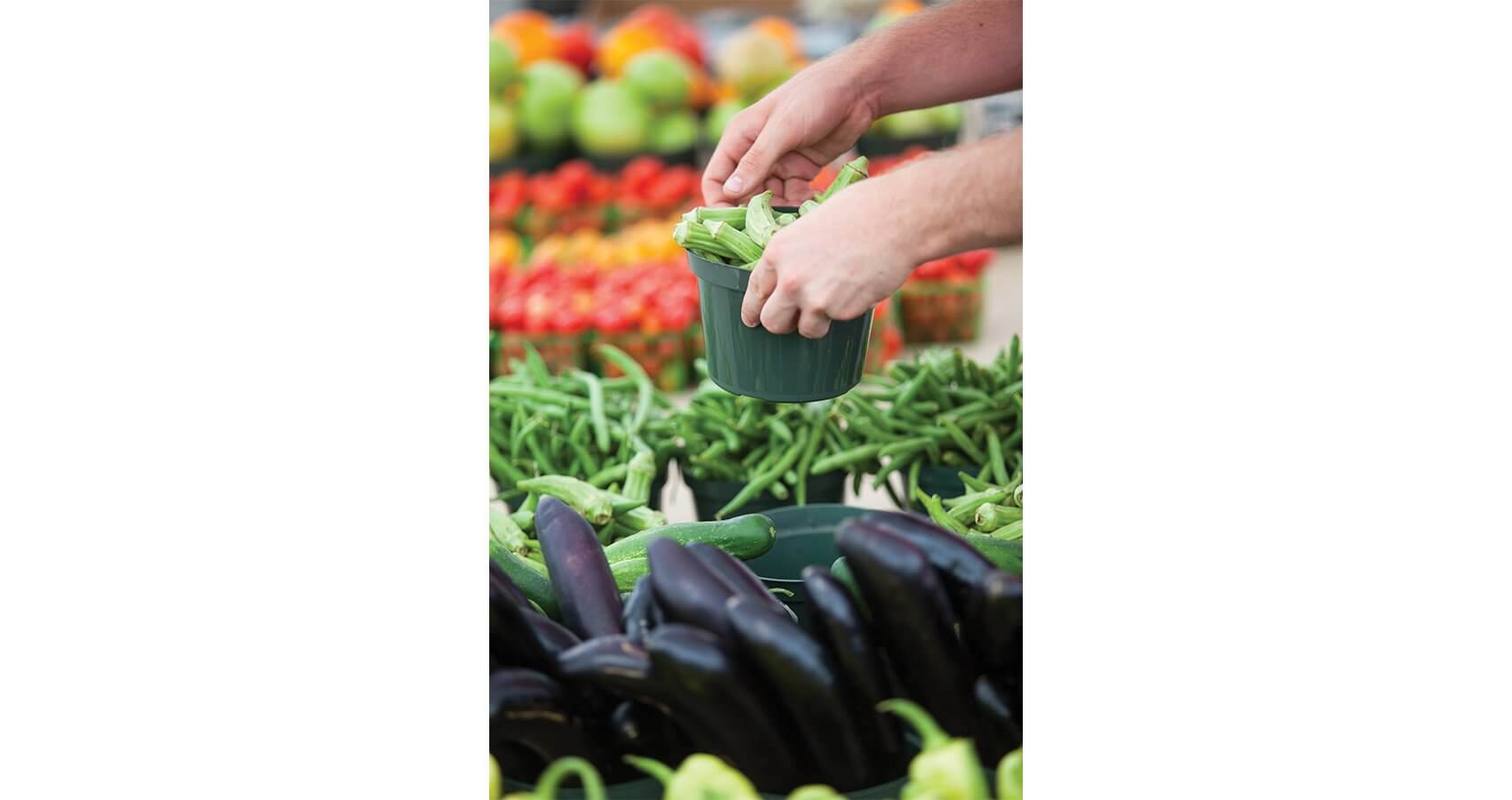Local Eats
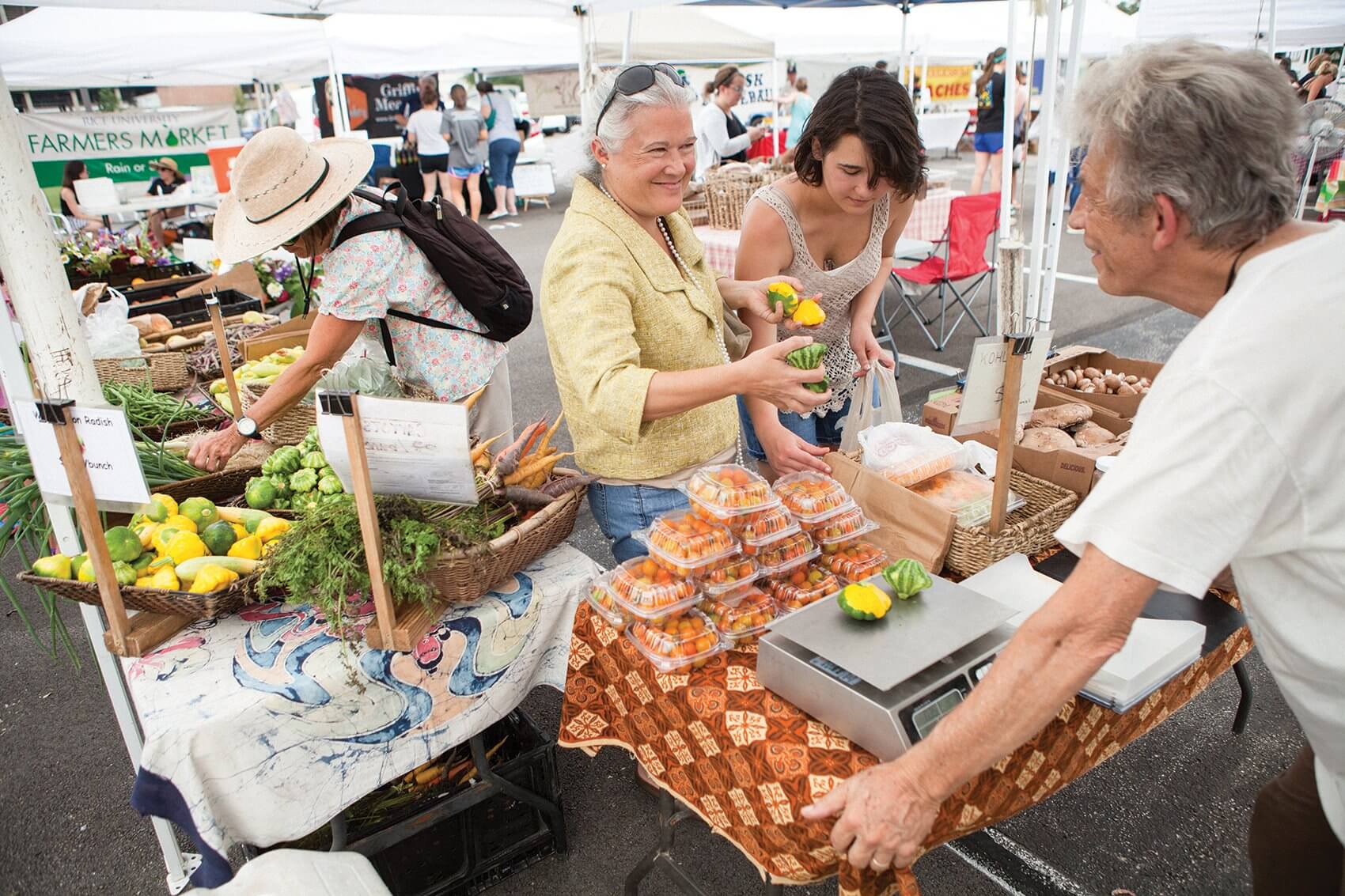
Every Tuesday afternoon, a series of tents pops up in a parking lot at Rice University, in the shadows of the university’s football stadium. No, it’s not a pre-game tailgate—year-round, rain or shine, this section of blacktop plays host to a farmers market.
The university invited the market, originally known as the Houston Farmers Market and held adjacent to Rice University, to move to its more spacious parking lot in 2007. In 2010, it became known as the Rice University Farmers Market and is now an official part of the university’s Housing and Dining department.
Between 25 and 30 vendors set up shop each week, selling everything from fruit, vegetables, meat and eggs, to popsicles, kombucha, artisan pasta and cheese. No two vendors are exactly alike. In fact, market manager Beth Leaver said they make a concerted effort to ensure variety each week so vendors don’t have to compete with other stands selling the exact same thing.
“We’re not going to have two vendors selling salsa, two vendors selling olive oil,” she said. “Vendor selection is based on bringing diversity to the market.”
The one thing everyone at the market has in common? An emphasis on local. For the Rice Farmers Market, “local” is defined as being produced within 200 miles of the university.
“If you’re getting food from a grocery store, it is probably coming from a distance away where it ripens while it travels. It’s not freshly picked that day,” said Leaver. “By shopping at a farmers market, you are given the opportunity to ask the farmer about how they grew their produce or how they’re raising their animals.”
To participate in the market, vendors fill out an application covering everything from the type of business to their growing practices—whether they are certified organic, sustainable or conventional. Admittance depends on a number of factors. Vendors who sell agricultural products take precedence over prepared food vendors. Prepared food products are only considered if the applicant can show that at least one ingredient is sourced locally year-round. Each vendor must have all of the necessary permits and licenses to operate a business, and the weekly fee for admitted vendors is $20.
“We are a nonprofit and all the weekly fees we collect go back into marketing and events we have throughout the year,” said Leaver. “We are simply hosting a local and sustainable food marketplace for the community.”
Though the goal is to keep the products sold in the market as local as possible, not all vendors are able to create 100 percent local products year-round. The seasonal nature of certain items means that someone who produces peach jam, for example, will not necessarily be able to find peaches locally all year long. The market management understands that, said Leaver, and uses signage to ensure consumers are aware of where their food comes from.
“Since I’ve been a part of this market, my goal has been to make everything as transparent as possible,” she said. “We do site inspections along with having our vendors display signs so our customers can clearly understand what they are buying, where it comes from, and how it was produced.”
Signs also clarify product details, such as whether produce is conventional, sustainable or certified organic. One regular vendor, Animal Farm, is certified organic. The 70-acre farm, based in Cat Spring, Texas, sells a variety of vegetables and fruits, as well as bouquets of flowers. Animal Farm operates off the grid and derives electricity from solar energy.
“Our mission is to bring fresh, local food to the people—to give people access to good food, period,” said owner Cas Van Woerden.
While the other vendors at the market may not be officially certified as organic, the majority are sustainable, meaning they follow many of the same practices as organic farmers.
The market also takes the word “farmers” in its title seriously. Although there are a number of stalls selling prepared foods each week, Leaver said priority is given to those interested in selling produce and protein they have grown and raised. That fact is not lost on those who travel many miles into the city of Houston to set up shop.
“I love the Rice market,” said Patricia Tieken of Shiner Pork and Beef. “It’s the only market I go to where more than 50 percent are actual farmers. That’s what people hopefully come to farmers markets for—to support small farmers—and when you come to Rice, you’re supporting small farmers.”
Tieken, her husband, and their four children run the 100-acre farm where they raise English Large Black hogs and Beefmaster cattle to produce heritage pork and grass-fed beef. They have been participating in the Rice market for about two years.
“When you come here and you buy bison, or pork and beef, or vegetables, or honey, you can’t get this quality of food anywhere else,” she said. “It spoils you.”
Rice’s support of the weekly farmers market goes beyond playing host. The chefs at the campus serveries often buy produce from the market and post signs at their cooking stations noting when ingredients are purchased locally. If a farmer who sells at the market has a surplus of a particular product, the serveries will sometimes do “food rescues,” meaning the chefs will purchase that surplus item to serve to students.
The market also employs a student intern. Current market intern, Belle Douglass, a rising senior, is co-president of a campus club called Real Food Revolution.
“We are very focused on promoting local and sustainable food and farming practices,” said Douglass. “We throw an event every semester where we have an on-campus chef make a three-course meal featuring local foods, a lot of which they buy at the farmers market.”
Douglass described Rice’s student body as very environmentally focused. “They like to know in the servery if things were purchased here, and there is definitely a positive response when they are,” she said.
The market hosts several major events each year that are popular among students. This past year, they held Oktoberfest, Mardi Gras and Cinco de Mayo events.
“Some of our Rice chefs will cook onsite with food purchased from the market, we’ll have a band play and a few local craft breweries—such as No Label, St. Arnold and Karbach—will join us as well,” said Leaver. “It’s almost like a street festival, but better. It’s a lot of fun, and we encourage the community to join us at these events.”
The true value of the Rice Farmers Market, however, goes beyond the university’s boundaries. The vendors and market staff described it as being more than simply a place to buy food. It’s an education—a way to learn more about where your food comes from and how it’s cultivated or raised. It’s a community gathering place, where students, professors, university staff and those living in the neighborhoods surrounding the university can come together.
“The Rice market has a real mixture of clientele,” said Mike Palmer, who owns Cellar Farms with his wife Cindy Palmer. “We have the college students and also people from different cultures who shop here. We hear a lot of different dialects.”
Cellar Farms sells a variety of sustainably grown produce, as well as the honey produced by the bees they keep. The Palmers hang a sign at their stall advertising local pure honey in both English and Chinese.
“That’s what we really like about this place,” said Palmer. “It’s a good open market with a lot of different cultures. The individuals around here just enjoy good fresh vegetables.”

